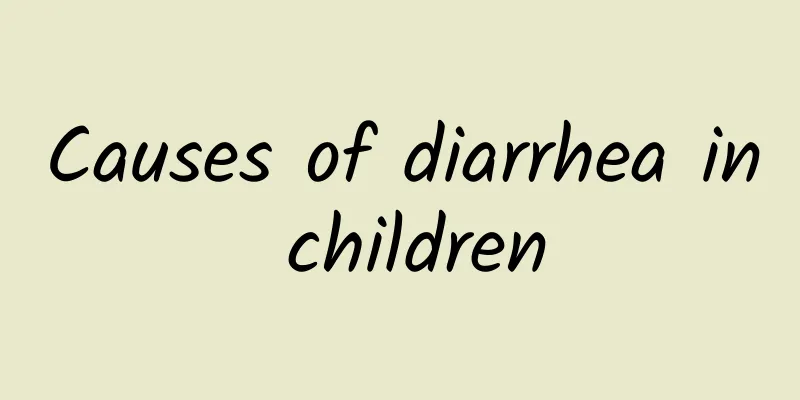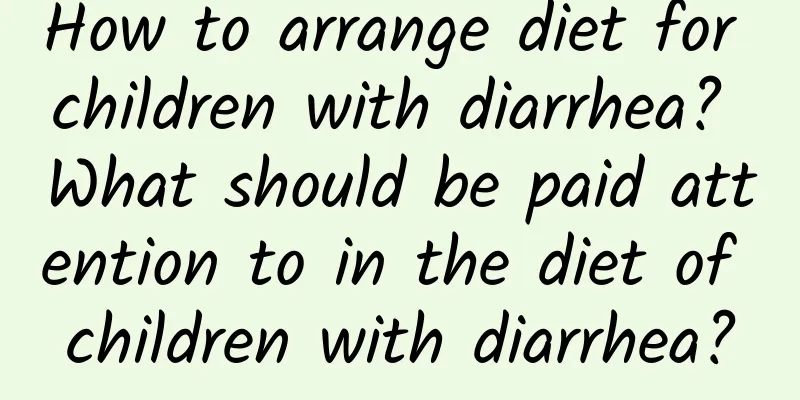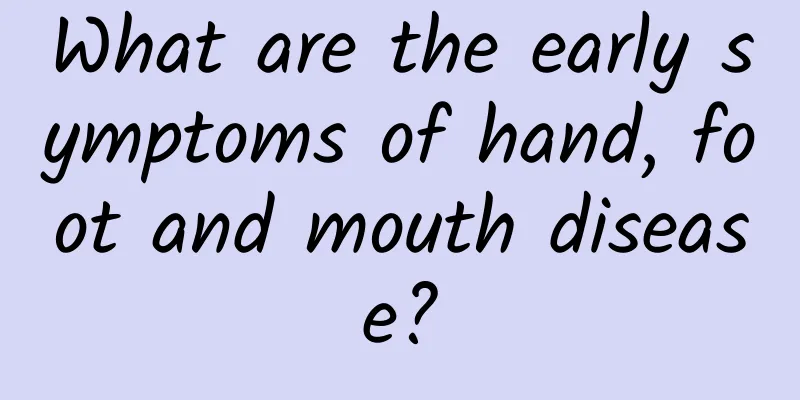Causes of diarrhea in children

|
What parents worry about most is that their children will suffer from pediatric diarrhea during their growth. Once the disease occurs, it will affect health and cause great harm to the children, so it needs our attention. In life, we must understand the causes of the disease. Let us take a look at the causes of the disease. The pathogens of diarrhea are mainly bacteria or viruses. Viral diarrhea can be caused by viruses, especially rotavirus infection, which is more common in infants and young children aged 6 months to 2 years. Children under 6 months old generally have fewer cases because they have antibodies from their mothers, and even if they do, the disease is mild. Clinically, fever and watery diarrhea may occur 5 to 10 times a day or more. Mild vomiting may occur in the early stage of the disease because the disease can invade the respiratory tract (also known as "reovirus"), and 40% to 50% of patients have respiratory symptoms such as coughing. Mild diarrhea affects the child's nutrient absorption, and severe diarrhea is often accompanied by dehydration and acidosis, which is life-threatening. When children have diarrhea, routine stool tests are required to identify the pathogen and select drugs. Fat globules are often seen in the stool of patients infected with rotavirus, but red and white blood cells are rarely seen. Peripheral blood tests are mostly within the normal range. The etiological diagnosis often performed in clinical practice is the rapid rotavirus antigen test of stool. For patients with dehydration symptoms, attention should be paid to correcting the imbalance of water and electrolytes, and blood biochemical tests should be performed when necessary. The natural course of rotavirus enteritis is generally 7 to 10 days, and the prognosis is generally good. However, recent studies have found that rotavirus can cause damage to multiple organs throughout the body. Rotavirus has been reported to be detected in the lung tissue, cerebrospinal fluid, pleural effusion, and ascites of sick children. We often see cases of heart involvement in clinical practice. Therefore, for children with diarrhea, we cannot just think that the disease has been cured when the diarrhea has stopped. Other corresponding tests must be performed. Diarrhea is usually divided into three types according to its severity: mild, moderate and severe. Mild: No symptoms of dehydration or poisoning, the child is in good spirits, and the appetite is not significantly affected. Moderate: Mild to moderate dehydration or mild poisoning symptoms. Severe: Severe dehydration or obvious symptoms of poisoning such as irritability, listlessness, pale complexion, etc. Infants and young children have poorly developed digestive systems, less secretion of various digestive enzymes, lower activity, poor tolerance to food and cannot adapt to large changes in food quality and quantity. Due to rapid growth and development, they require relatively more nutrients, a heavier burden on the digestive tract, and are often in a state of tension, making them prone to digestive disorders. The acidity in the stomach is lower than that of adults, and their antibacterial ability is poor. Their blood immunoglobulins and gastrointestinal SIgA are both low, making them susceptible to intestinal infections. Through the understanding of the above content, we already know very clearly the causes of childhood diarrhea. I hope that parents and friends can learn more about it. In life, we must pay attention to the behavior of children. When children have diarrhea, we should actively treat it and pay attention to a lighter diet. |
<<: Breakfast recipes for children with diarrhea
>>: Measures to prevent diarrhea in children
Recommend
Can Hirschsprung's disease be cured? Treatment of Hirschsprung's disease
Hirschsprung's disease refers to a condition ...
Mumps symptoms and treatment
Mumps generally refers to epidemic parotitis, whi...
What should you pay attention to when using medicine for children with colds? Five nursing tips for children with colds that parents must know
Children's cold is a common pediatric disease...
How to treat children with ADHD
The treatment of children with ADHD requires comp...
Is mumps without fever considered mild?
Mumps without fever is not necessarily mild. Mump...
Can I get a vaccination after taking Children's Cold Granules?
After drinking Children's Cold Granules, it i...
How to treat ADHD in children
The treatment of tics and ADHD in children is a t...
What are the folk remedies for treating children's cough? Introduction to dietary therapy for children's cough
Children's cough has always been one of the b...
What are the symptoms of hand, foot and mouth disease in children? 4 examination items for hand, foot and mouth disease in children
Hand, foot and mouth disease is a common disease ...
What are the routine examination items for Kawasaki disease?
Many friends often suffer from many diseases beca...
What are the benefits of drinking dandelion root soaked in water? There are 7 benefits of drinking dandelion root soaked in water
Dandelion roots are usually used to soak in water...
How much is a reasonable fee for checking pediatric eczema?
How much is a reasonable amount for a child to ha...
Can children with cough eat shrimp?
Children can eat shrimp in moderation when they h...
Fruits that are the nemesis of hand, foot and mouth disease
Hand, foot and mouth disease is an infectious dis...
How to treat jaundice in children
How to treat jaundice in children? The treatment ...









